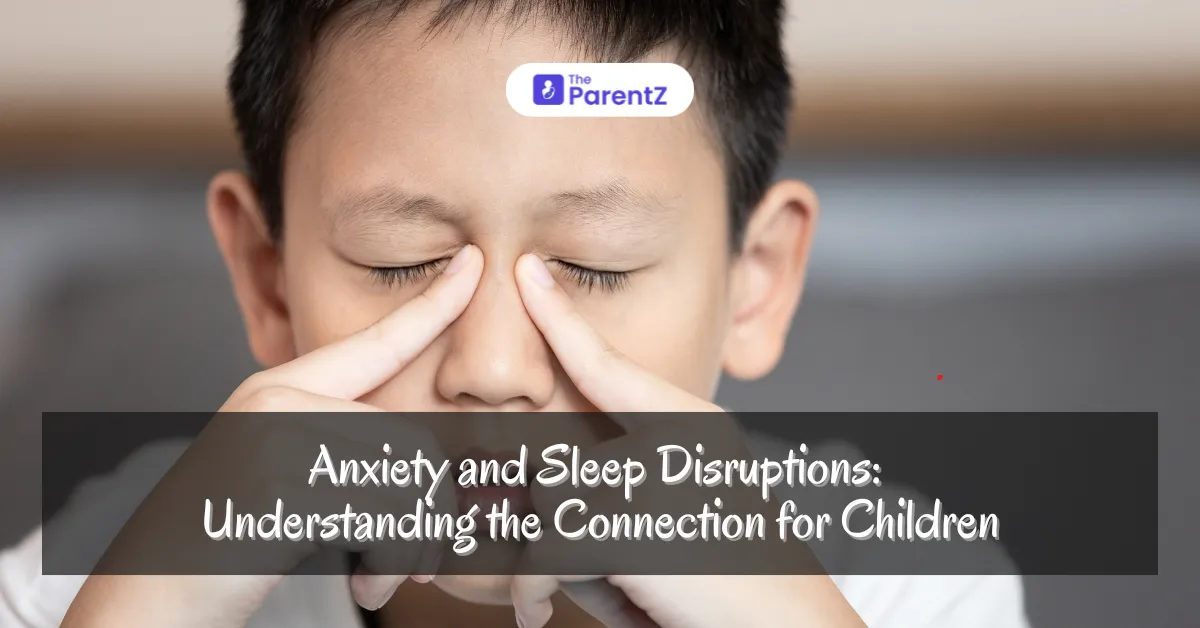Bedtime can be tough for some kids. Worry is like an unwelcome guest that sneaks into their bedroom, making it hard to feel calm and fall asleep. Imagine your child's body is like a car alarm. When they feel worried, this alarm stays on all night. Instead of relaxing, their body stays on high alert, making sleep really difficult.
As a parent, it's heartbreaking to see your child struggle with sleep. Therefore, we need to understand this connection and help our child navigate their fears and achieve restful sleep.
The Nature of Anxiety in Children
Anxiety disorders are one of the most common mental health issues impacting children today, with estimates suggesting that 12 to 20% of youth experience some form of anxiety. These disorders can be embodied in various ways, including separation anxiety, social phobia, generalized anxiety disorder, and obsessive-compulsive disorder. Children may express their anxiety through behaviors such as excessive worrying about school performance, fear of social situations, or even nightmares. Understanding these manifestations is key to addressing their sleep disruptions.
When children experience anxiety, their bodies respond with a heightened stress response. This response triggers the release of cortisol, the body’s primary stress hormone, which prepares them for perceived threats. Elevated cortisol levels lead to physical symptoms like increased heart rate, muscle tension, and gastrointestinal discomfort—all of which contribute to difficulty falling asleep or staying asleep.
The Impact of Anxiety on Sleep
The link between anxiety and sleep issues is reciprocal. On one hand, anxiety can lead to various sleep-related problems (SRPs), including:
- Sleep Onset Insomnia: Difficulty falling asleep due to racing thoughts or fears.
- Nighttime Awakenings: Frequent waking during the night, often accompanied by feelings of fear or restlessness.
- Nightmares: Vivid dreams that can cause distress upon waking.
- Bedtime Resistance: Reluctance to go to bed due to fears associated with darkness or separation from parents.
On the other hand, poor sleep often exacerbates anxiety symptoms. Sleep deprivation negatively affects mood regulation and cognitive function, making it harder for children to cope with stressors during the day. This creates a vicious cycle where anxiety disrupts sleep, leading to increased daytime anxiety and further sleep issues.
Psychological Mechanisms
From a psychological standpoint, several factors contribute to the relationship between anxiety and sleep disruptions:
- Heightened Anxiety Sensitivity: Children with high anxiety sensitivity are particularly attuned to physiological sensations linked with anxiety, like a racing heart or shallow breathing. This hyperawareness can make it difficult for them to relax at bedtime, leading to prolonged sleep onset latency.
- Cognitive Overactivity: Many anxious children struggle with ruminating thoughts at night. As distractions from daily life fade away, worries about school performance, friendships, or family dynamics may intensify. This cognitive overactivity can prevent them from winding down and falling asleep.
- Fear of Nighttime Fears: Younger children often have fears related to dark or imaginary threats like monsters. These fears can lead to bedtime resistance and increased anxiety about going to sleep.
Physical Implications
The physical implications of this cycle are significant. Chronic sleep disturbances often lead to a host of health issues in children, including:
- Impaired Immune Function: Lack of quality sleep weakens the immune system, making children more susceptible to illness.
- Behavioral Issues: Sleep-deprived children may exhibit irritability, mood swings, and difficulty concentrating—all of which can affect their academic performance and social interactions.
- Increased Anxiety Symptoms: The interplay between poor sleep and heightened anxiety creates a feedback loop that exacerbates both conditions.
Practical Strategies for Parents
To help your child manage anxiety-induced sleep disruptions effectively, consider implementing the following strategies:
Establish a Calming Bedtime Routine
Creating a consistent bedtime routine can significantly reduce anxiety and help children transition to sleep more easily. This routine should last about 30-40 minutes and include calming activities such as:
- Warm Bath: It relaxes muscles and signals that it’s time to wind down.
- Reading Together: Choose calming stories that promote feelings of safety and comfort. Avoid exciting or scary tales that might heighten anxiety.
- Gentle Stretching or Yoga: Include simple stretches or yoga poses to release tension and encourage relaxation.
Use Grounding Techniques
Grounding techniques can help children manage their anxiety by bringing their focus back to the present moment. Parents can guide their children through:
- Deep Breathing Exercises: Teach your kid to take deep breaths, focusing on their belly rising and falling. For instance, have them imagine they are blowing up a balloon with each inhalation.
- Sensory Engagement: Encourage your child to engage their senses by explaining what they see, hear, smell, and feel in their environment. This can help distract them from anxious thoughts.
Create a Comfortable Sleep Environment
A conducive sleep environment is crucial for reducing anxiety-related sleep disruptions. Consider the following:
- Nightlights: If your child is afraid of the dark, use a soft nightlight that provides comfort without being too bright. Avoid lights that shine directly in their eyes.
- White Noise Machines: These can help mask background noises that might disturb sleep, creating a more peaceful atmosphere.
- Comfortable Bedding: Ensure your child’s bed is comfortable with appropriate bedding for the season (not too hot or cold).
Address Specific Fears Directly
If your child has specific fears (e.g., fear of monsters), address these directly:
- Monster Checks: Together, check for "monsters" under the bed or in the closet as part of the bedtime routine, reassuring them that their room is safe.
- Empower with Solutions: Discuss what they can do if they feel scared at night, such as using a "magic spray" (a spray bottle filled with water) to "keep monsters away."
Implement Positive Reinforcement
Encourage your child’s efforts to manage their anxiety by offering positive reinforcement:
- Praise Brave Behaviors: Acknowledge when they express their fears or try new coping strategies. Let them know you’re proud of their efforts to face their anxieties.
- Reward Systems: Consider using a sticker chart where they earn stickers for successfully following the bedtime routine or sleeping through the night without waking up due to anxiety.
Gradual Separation Techniques
If your child struggles with separation anxiety at bedtime, gradually teach them to feel secure alone:
- Check-in Method: After tucking them in, reassure them you’ll check in after a few minutes. Gradually increase the time between check-ins to help them build independence.
- Comfort Objects: Allow your child to have their favorite stuffed animal or blanket that provides comfort during the night.
Normalize Their Feelings
Help your child understand that experiencing anxiety is normal:
- Open Conversations: Talk openly about feelings of anxiety, reassuring them that many children experience similar feelings. This normalization can reduce feelings of isolation.
- Coping Discussions: Discuss coping strategies together when they are calm, reinforcing that they have tools available when they feel anxious.
When to Get Extra Help
Talk to a doctor or child expert if:
- Worry seems to control their life
- Sleep problems don't improve
- Your child seems very stressed
- You're feeling overwhelmed
Conclusion
Understanding the intricate relationship between anxiety and sleep disruptions is essential for parents seeking to support their children's emotional well-being. By implementing these targeted strategies, parents can help alleviate their children's anxiety-related sleep disruptions effectively. With patience and consistency, parents can guide their children toward restful nights and brighter days ahead.








Be the first one to comment on this story.